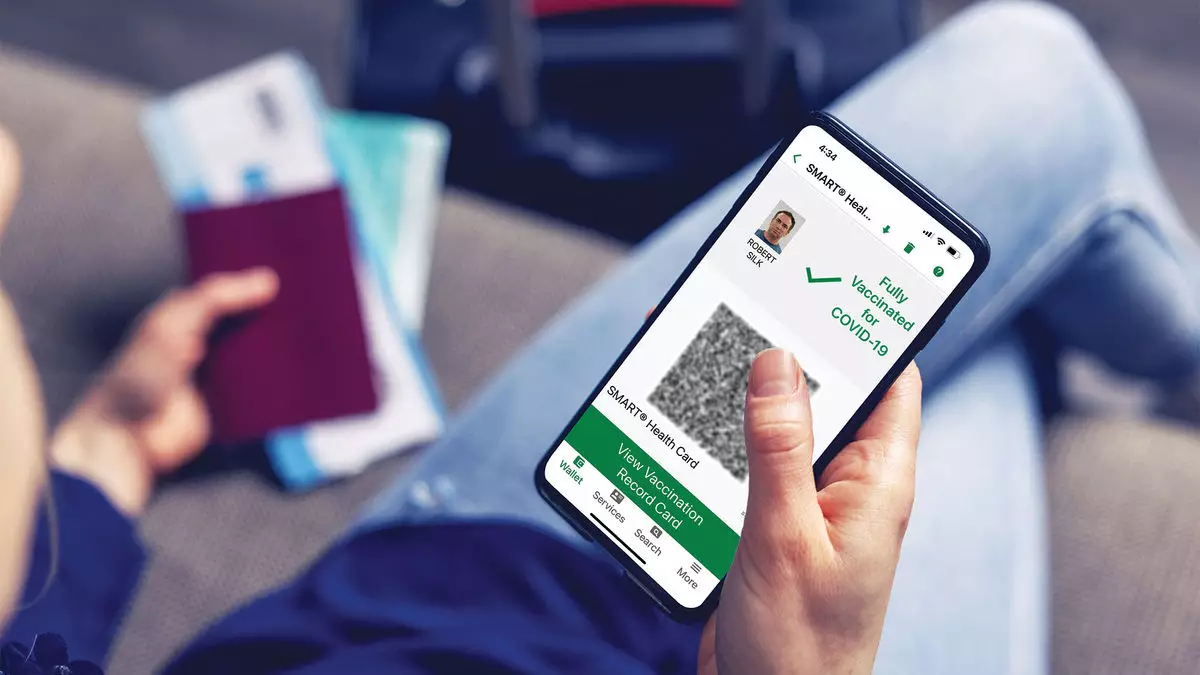In recent times, the emergence of mpox in Central Africa has highlighted the unpredictable nature of public health threats. This ongoing situation reaffirms the importance of strategic readiness in the face of health emergencies. Experts in public health emphasize that the groundwork laid during the COVID-19 pandemic surrounding vaccine credentials is crucial for smoother cross-border travel in future crises. The successful implementation of digital health records during the pandemic could serve the global community once more, should new health challenges arise.
During the COVID-19 crisis, various stakeholders, including public health departments and private organizations, worked meticulously to establish digital health records. Heather Roth, the immunization branch director at the Colorado Department of Public Health and Environment, noted that once difficult solutions are developed, they become much easier to replicate in future scenarios. This sentiment reflects the significant strides taken in the dissemination and standardization of digital immunization credentials, which began to take shape significantly in the latter part of the pandemic and continue to evolve.
Currently, 25 states, including Colorado, have adopted a digital tool known as Smart Health Cards, which feature QR codes that facilitate easy verification of vaccination status. These cards function as a digital passport that simplifies health documentation for travel, allowing airlines, cruise lines, and border control agencies to access secure vaccination data rapidly. In states that do not issue Smart Health Cards, alternative providers such as pharmacies have stepped in, ensuring that a digital solution is available for those seeking easy and reliable access to their immunization records.
The Global Adoption of Digital Health Records
Internationally, countries like Canada and Japan have embraced the Smart Health Card system, which the World Health Organization recognizes as compliant with global vaccination credential standards. JP Pollak, a co-founder of the organization involved in developing these standards, highlighted that although current QR codes predominantly reflect COVID-19 vaccinations, systems are flexible enough to incorporate additional data points like flu vaccinations in the future. For instance, New York now issues QR codes for flu shots, enhancing the relevance of these digital records beyond just the pandemic.
Preparation is key, given the inevitability of future public health challenges. The WHO characterized the mpox outbreak in the Democratic Republic of Congo as a public health emergency, urging that the established digital frameworks could smoothly integrate similar crises if needed. As Pollak pointed out, the flexibility of these systems means that adding a new QR code for a different vaccine or health requirement is an achievable task.
In the context of global travel, the digital health credentials implemented during COVID-19 are invaluable. Despite the pandemic-related travel restrictions now being lifted, the innovations have laid a robust framework for future travel requirements. Historically, travelers faced cumbersome processes to obtain required vaccination documents, often leading to stress and delays, especially in regions with specific vaccination mandates, such as yellow fever in South America. Now, with digital access to immunization records becoming commonplace, travelers have benefited greatly.
Applications like Docket have emerged, enabling users to access their vaccination history rapidly—sometimes just moments before flights. This proactive approach helps travelers prepare adequately and avoids last-minute scrambles for documentation. As digital technologies continue to advance, the ability to streamline health records plays a crucial role in supporting individuals during travel by making vital health information available on their smartphones.
Beyond travel readiness, the development of the International Patient Summary (IPS) represents another leap forward in healthcare interoperability. This initiative seeks to enable individuals to share their comprehensive health records globally, safeguarding against unexpected medical needs while traveling. The IPS allows for seamless information sharing across 40 countries, ensuring that medical data can be accessed and utilized appropriately wherever needed. While the complete implementation of such systems may take time, early applications have demonstrated their potential.
For example, during the recent Hajj pilgrimage, Malaysia’s health ministry successfully employed the IPS framework to digitize health examination results for thousands of participants. This enabled a smooth data sharing process with Saudi healthcare facilities, showcasing how digital health integration can improve public health logistics.
Looking to the Future
As the world continues to grapple with the fallout of the COVID-19 pandemic and faces new health challenges like mpox, the value of established digital health records cannot be understated. What began as a response to a global emergency has evolved into a foundational component of healthcare logistics and travel security. With experts stressing the importance of preparedness and adaptability, the global community is positioned to face future health crises with greater efficiency and effectiveness, heralding a new era of interconnected public health readiness.


Leave a Reply